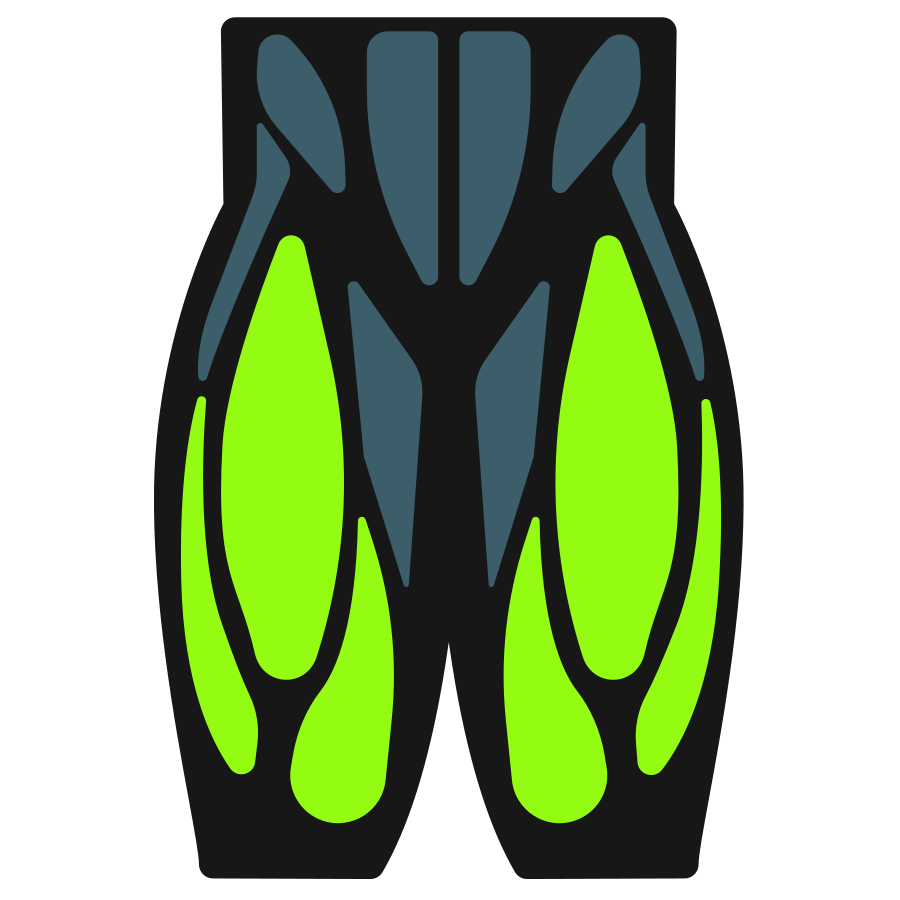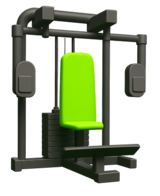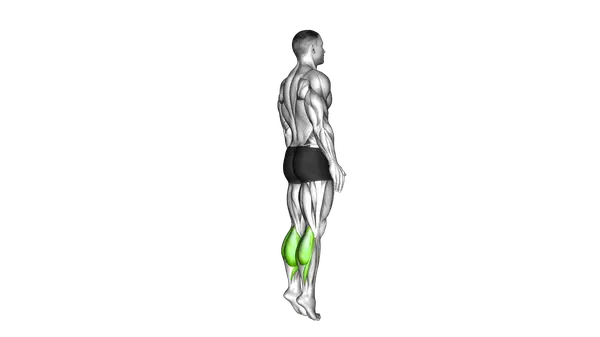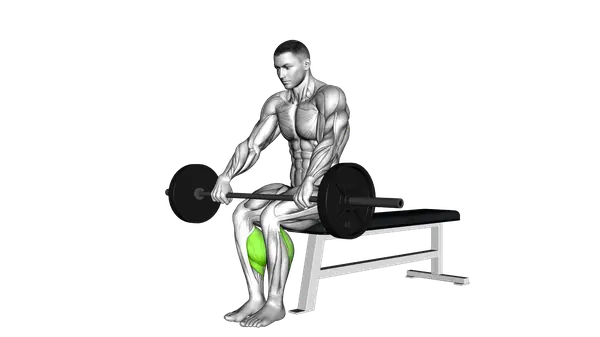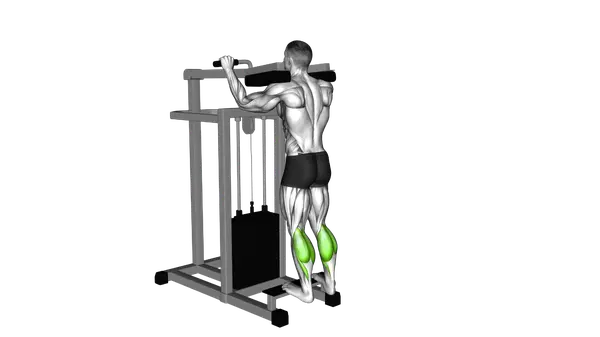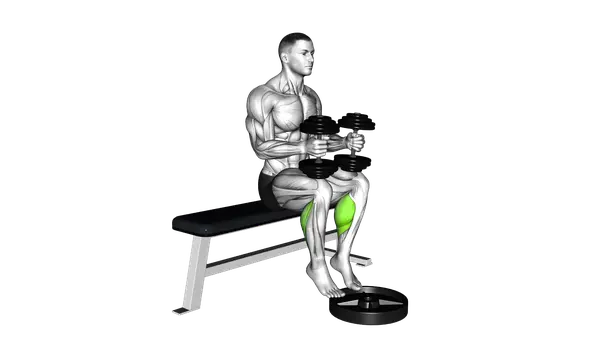Exercise
Lever Seated Calf Raise (Plate Loaded)
The Lever Seated Calf Raise is a machine exercise that targets the calves with controlled resistance while seated for focused lower-leg strength.
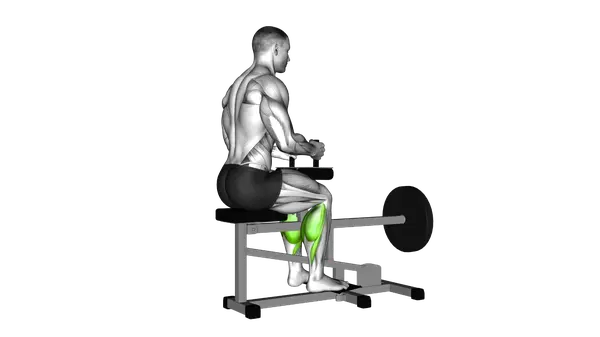
Lever Seated Calf Raise (Plate Loaded)
The Lever Seated Calf Raise (plate loaded) is a machine-based exercise performed in a seated position with weight placed over the thighs. The setup fixes the hips and upper legs in place, so the movement comes almost entirely from lifting and lowering the heels against resistance, keeping the motion consistent and repeatable.
The exercise mainly works the calves, which are responsible for pushing the foot downward. Because the knees stay bent in the seated position, the emphasis shifts away from the upper leg and onto the lower leg muscles. The machine support reduces help from other areas, allowing the calves to do most of the work through the full range.
Lever Seated Calf Raise is commonly used in strength and hypertrophy training when the goal is direct calf development. It suits both beginners who benefit from a stable setup and experienced lifters looking to add controlled volume. Compared to standing calf raises, it limits balance demands and makes it easier to focus purely on load, control, and repetition quality.
How to Perform the Lever Seated Calf Raise (Plate Loaded)
- Adjust the seated calf raise machine by placing the seat at a height that positions your knees at a 90-degree angle when seated, with the balls of your feet on the platform and heels extending off the edge.
- Sit on the machine with your thighs under the pad, back straight, and place your hands on the pad or handles for added stability.
- Load the appropriate weight onto the machine's weight pin or plate holder, ensuring it's secure before beginning the exercise.
- Position the balls of your feet firmly on the platform with your heels hanging off the edge, and keep your toes pointed forward or slightly outward.
- Exhale as you push through the balls of your feet to raise your heels as high as possible, contracting your calves at the top of the movement.
- Hold the fully contracted position for 1-2 seconds, focusing on the squeeze in your calf muscles.
- Inhale as you slowly lower your heels below the level of the platform, feeling a full stretch in your calf muscles without bouncing at the bottom.
- Maintain control throughout the entire movement, keeping your knees stationary and aligned with your toes throughout the exercise.
Important information
- Keep your back straight and shoulders relaxed throughout the exercise to maintain proper form and prevent unnecessary strain on your lower back.
- Focus on a full range of motion, allowing your heels to drop below the platform for a complete stretch before raising them to maximize calf development.
- Adjust your foot position slightly (toes straight, inward, or outward) across different sets to target different areas of the calf muscle.
- Start with lighter weights to master proper form before progressing to heavier loads, as using too much weight can compromise technique and reduce effectiveness.
FAQ - Lever Seated Calf Raise (Plate Loaded)
The Lever Seated Calf Raise primarily targets the soleus muscle, which lies beneath the gastrocnemius. Because you're in a seated position with knees bent, the gastrocnemius is somewhat relaxed, allowing greater isolation of the soleus for comprehensive calf development.
Sit with your knees under the pad, feet hip-width apart on the platform, and place the balls of your feet on the edge with heels extending off. Lower your heels as far as possible below the platform, then press through the balls of your feet to full extension, squeezing at the top for 1-2 seconds before controlling the descent.
For optimal calf development, incorporate this exercise 2-3 times weekly with at least 48 hours between sessions for recovery. Calves tend to respond well to both frequency and volume, so 3-4 sets of 10-15 reps per session will stimulate growth while allowing adequate recovery.
Avoid bending your elbows to compensate for limited shoulder mobility, as this negates the stretching benefits. Don't rush through repetitions or use momentum—move slowly and deliberately. Also, never force the movement beyond the point of mild discomfort, as this could lead to shoulder strain.
Beyond adding more plates, you can increase difficulty by implementing tempo training (3-second lowering phase, 1-second pause at bottom), performing single-leg variations, or incorporating drop sets. For advanced lifters, try pausing for 3-5 seconds at the fully contracted position to maximize time under tension.

Lever Seated Calf Raise (Plate Loaded)
Exercise Details
Primary Muscles
Muscle Groups
Mechanic
Risk Areas
Built for progress
Take the guesswork out of training
Create personalized AI-powered workout plans that evolve with you. Train smarter, track every rep and keep moving forward, one workout at a time.






